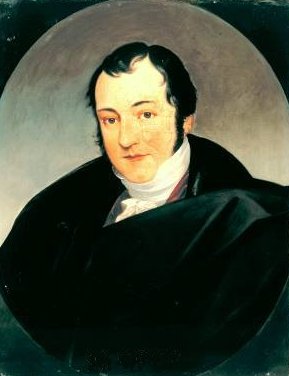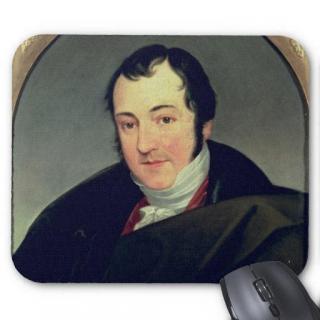Karl Thomas Mozart
Carl Thomas Mozart ( born September 21, 1784 in Vienna, † October 31, 1858 in Milan, often called Carl or Karl Mozart Mozart) was the second son and the older of the two surviving children of the father of Wolfgang Amadeus Mozart and Constanze Weber born.
Life
After his father's death, Constanze gave to the seven years of the Prague school professor Carl Franz Xaver Niemetschek, who took care of the education of the boys and he also gave piano lessons. Here Carl remained until 1797. As the age of fourteen he went to Livorno, where he began an apprenticeship in a trade house. He thought at this time from starting a business with pianos. But he found no satisfaction in the commercial level and moved at the end of 1805 to Milan to study music here. On the recommendation of Joseph Haydn the Milan Conservatory director and composer bonuses Asioli taught him.
In the first two years Carl's progress has been promising, but in the third year he gave the musical career on. He joined then as a civil servant in the government service, initially as a translator within the then French administration of Lombardy. After their incorporation into the Empire of Austria 1815 he was an official of the State Accounting and led a modest life in Milan. In August and September 1820, his brother Franz Xaver Wolfgang kept on visiting him, 1825, he saw his mother in Milan, they turn him in 1836 in Salzburg. During his official career, he continued as an official translator for Italian for kk Financial management operates. In 1842 he participated in Salzburg in 1856 and just there in the celebrations for the 100th anniversary of his father's birthday each guest of honor at the unveiling of the Mozart monument.
Like his brother Carl Thomas Mozart died unmarried and had no children. The direct descendants of Wolfgang Amadeus Mozart mid-19th century is therefore extinct.
Importance
Carl Thomas Mozart tried to of his early years up to his death to promote his father's memory. During his lifetime, Carl established the Mozarteum in 1841, which later became the International Mozarteum Foundation emerged, already bequeathed the wing of his father, he presented the institution with a considerable sum of money, about wrote her notes and books. His correspondence, which was published in large part in the Notices of the International Mozarteum Foundation, represents a significant source of family history of Mozart and Mozart reception in the first half of the 19th century dar.
Letter editions
- Mozarteum messages 1-3 (1918-1921)
- Rudolph Angermüller: Mozartiana from the Hans Wertitsch collection, in: Communications of the International Mozarteum Foundation 34 (1986 ), pp. 65-83
- Rudolph Angermüller: Two unpublished letters Carl Mozart, in: Communications of the International Mozarteum Foundation 38 (1990 ), pp. 145f.
- Rudolph Angermüller: An unpublished letter Carl Mozart, in: Communications of the International Mozarteum Foundation 43 (1995 ), Issue 1-2, pp. 88-90






_1825.jpg)



